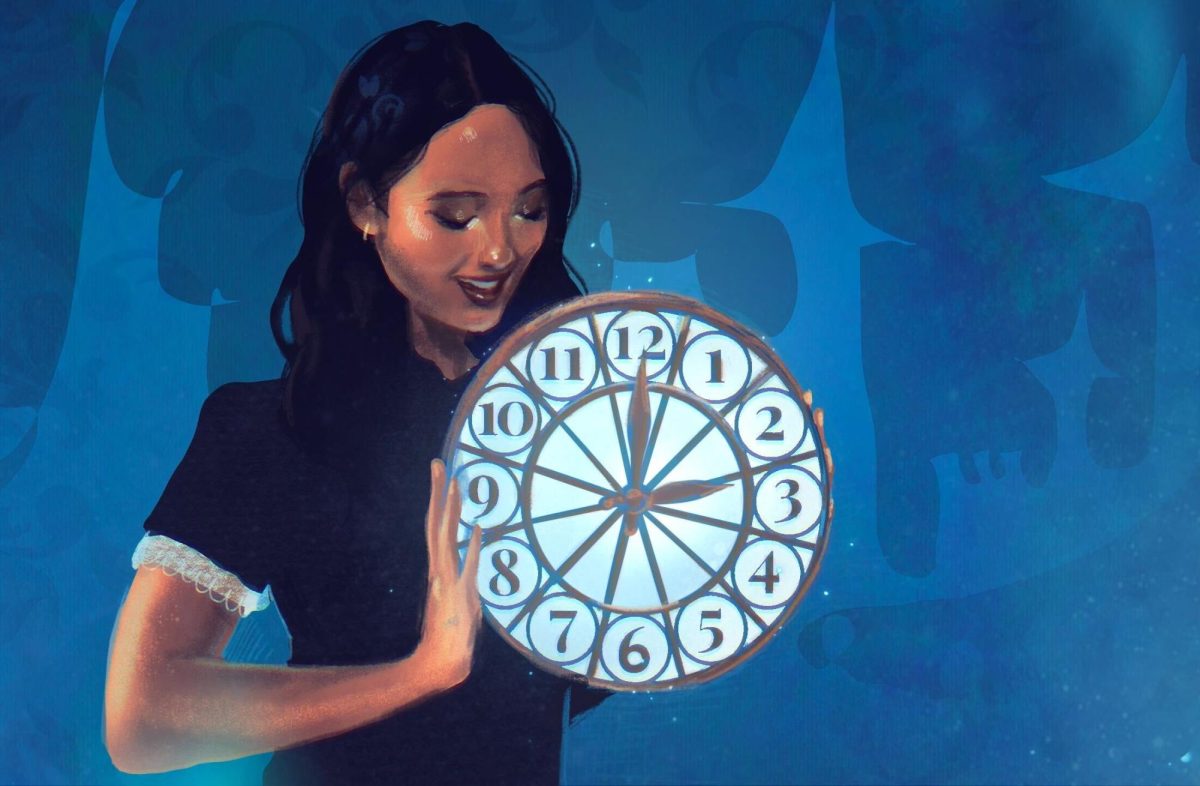Original Vice President Kamala Harris print cover a cover-up for racism and prejudice at Vogue
January 31, 2021
Option one depicts her sporting a powder blue suit while standing in front of a beautiful gold and tan backdrop.
Option two, with green and pink drapes messily hung in the background, shows the vice president wearing a basic black blazer with a plain white blouse and Converse Chuck Taylor sneakers. Her arms are clenched over her torso while she stares off to the side.
Of the two options, the first better conveys the power and gravitas befitting of the first Black-Asian female vice president.
Yet, Vogue chose that image of vice president Kamala Harris as its cover photo for its February 2021 print issue, while showcasing the better photo only on a special inaugural issue.
Only a limited quantity of this special inaugural issue are printed with the alternative cover; the main print issue will remain unchanged.
Whether any intentional foul play occurred by the Vogue staff, the chosen print issue cover clearly did not suit the first Black-Asian female vice president.
When Vice President Kamala Harris landed the cover of Vogue magazine, an anonymous source from Harris’ team claimed that the image selected was not what it had agreed on.
Harris’ team had complete control over her clothes, hair and makeup, according to The Guardian, meaning that they chose both outfits displayed. However, Harris’ team and Vogue had reached an agreement to display the first formal option on the print cover instead of the casual one.
After viewing the two different cover photo options, initially from a Twitter leak on Jan. 9 and then when Vogue editors themselves released it the next day, many journalists, members of Harris’ team and some internet users expressed outrage. The casual photo choice did, after all, seem rushed, unprofessional and overall underwhelming for what should have been a monumental issue.
A minority of people, however, did support Vogue’s cover, praising them for featuring a powerful Afo-Asian woman on the cover.
According to Vogue’s website announcement on Jan.11, the pink and green fabrics draped in the background paid tribute to Harris’ college sorority, the first African American sorority, Alpha Kappa Alpha at Howard University, while her clothes conveyed her approachable and laidback nature.
Regardless of what Vogue aimed to accomplish with the cover, it only diminished Harris’ character along with her monumental Nov. 3 election victory.
Others criticized the overall quality of the photo, saying that it did not meet Vogue standards as well as past issues have, like the recent December 2020 issue showcasing singer Harry Styles wearing a blue dress and black blazer while posing in a field.
Professional photographers even took to social media outlets like Twitter to confirm that Vogue produced a cover at substandard quality, at best. In their professional opinion, the Vogue cover had terrible lighting, an unflattering pose and subpar editing.
In light of all the criticism, it is almost unbelievable that Vogue unapologetically stuck with its original and truthfully inferior choice, instead of changing it.
A Vogue spokesman told The Guardian that the picture was chosen because it better “captured Vice President Harris’ authentic, approachable nature, which … is one of the hallmarks of the Biden/Harris administration.”
In response to the valid criticisms of the print cover, Vogue decided to print a separate special inaugural edition with the golden photo, as stated in a Jan.19 Twitter post, “In recognition of the enormous interest in the digital cover, and in celebration of this historic moment, we will be publishing a limited number of special edition inaugural issues.”
Though Vogue’s intentions may have been sincere, its laughable execution only diminished the effectiveness of its issue.
As much as America appreciates seeing politicians depicted as “normal people like them,” Harris’ victory is anything but normal; it is historic.
As the first woman to ever be elected the second highest position of the United States, Harris should have instead been portrayed with her more formal photo in a powerful and respectable manner. By reducing her to nothing more than an ordinary person, Vogue ignores all the glass ceilings she shattered throughout her career.
Vogue editors should have taken advantage of this opportunity to showcase our first female VP and the fact that they did not is solely the fault of the editor-in-chief, Anna Wintour.
According to a New York Times news article published on Dec.15, 2020, Wintour has been accused of sidelining ethnically diverse photographers and running offensive stories; this is not the first time Wintour has inadvertently silenced minorities. Although it should be noted that Tyler Mitchell, the first Black Vogue photographer to shoot a cover photo, shot Harris’ cover photos.
As the only person who could make or reverse such an important decision, Wintour should have recognized the transparent fallbacks of her actions. Instead, her ignorance and disinterest caused serious harm to any Americans who support Harris and the progress her election has made.
Harris’ accomplishments inspire women, minorities and disenfranchised people all over the country — people symbolically honored with our vice president-elect’s appearance on the magazine’s cover. However, Vogue’s incompetence ruins this noble goal.
Ultimately, Vogue made the right decision in publishing the special editions with the cover agreed by both the Vogue editorial board and Harris’ campaign.
In the future, publications should be more aware of the implications of not putting in adequate effort, especially when featuring minorities who have rarely been represented in media.


![Vogue’s upcoming February 2021 issue, announced on Jan.19, featuring Vice President Kamala Harris, will have two versions: the print and the special inaugural edition. The main print issue cover [right] was criticized for being terribly edited and unbefitting for the first female second in com. The alternative cover [left], used only for a limited edition issue, better features Harris and the importance of her historic victory.](https://shhsaccolade.com/wp-content/uploads/2021/01/8E8AEA32-8E16-467B-AA13-2FFD9586A52D-1-300x225.jpeg)









